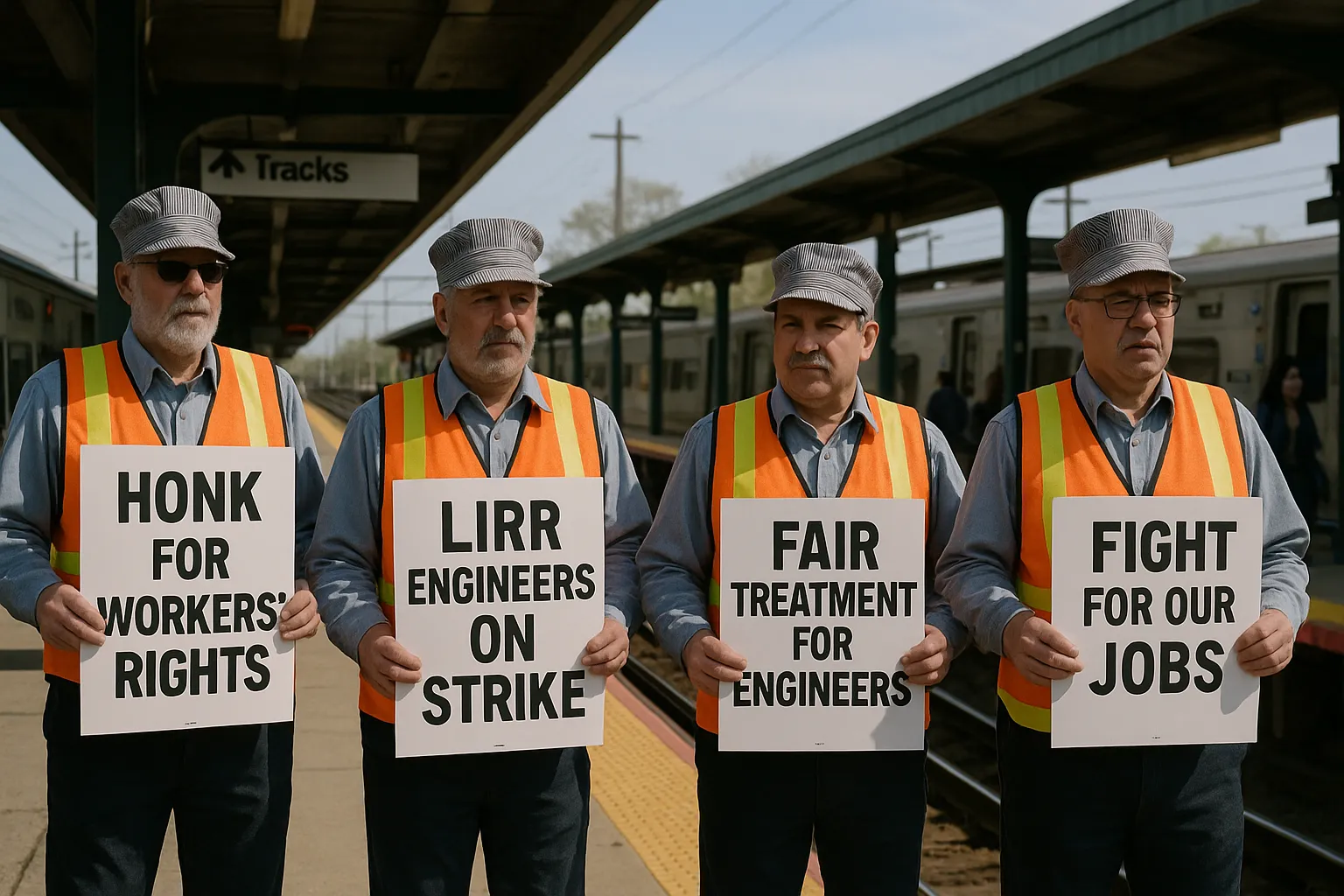LIRR Engineers Vote to Authorize Strike After Contract Talks Stall

Lead Long Island Rail Road engineers voted Monday to authorize a strike amid stalled contract talks with the MTA, setting the stage for a possible work stoppage as early as Sept. 18.
Nut Graf The Brotherhood of Locomotive Engineers and Trainmen (BLET), representing nearly 600 LIRR engineers, joined four other unions in rejecting the MTA’s 9.5 percent wage offer over three years and demanding a 16 percent increase. The vote heightens the risk that more than 270,000 daily commuters could lose rail service if no deal is reached before the strike deadline.
Walkout Vote and Next Steps
At a Midtown news conference at noon, BLET leaders announced that a majority of ballots authorized a strike under the Railway Labor Act. With federal mediation ended on Aug. 18, a 30-day cooling-off period expires at 12:01 a.m. Thursday, opening the door for a legal walkout unless Governor Hochul, the MTA or the unions request a Presidential Emergency Board.
Union Demands and Authority Offer
Union coalition members-including the Brotherhood of Railroad Signalmen, IAMAW, IBEW and TCU-seek cost-of-living raises to keep pace with inflation, arguing that engineers have gone without a raise since April 2022. MTA officials counter that their 9.5 percent proposal is in line with regional labor agreements and warn that outdated work rules drive up costs.
Commuter Contingency Plans
The MTA unveiled limited shuttle-bus service between select LIRR stations and Queens subway transfer points, running every 10 minutes during weekday peak hours. Riders are urged to work from home where possible, as buses cannot match rail capacity and would likely lead to severe congestion and delays.
Economic and Community Impact
A strike would disrupt travel to Manhattan, LaGuardia and JFK airports, and Bethpage State Park, site of the Ryder Cup beginning Sept. 26. Officials estimate that nearly a quarter-million golf fans and key workers could be affected, amplifying pressure on both sides to negotiate a settlement before service halts.
Categories
Autos and vehicles Beauty and fashion Business and finance Climate Entertainment Food and drink Games Health Hobbies and leisure Jobs and education Law and government Other Politics Science Shopping Sports Technology Travel and transportationRecent Posts
Tags
Archives
08/19/2025 (3) 08/20/2025 (40) 08/21/2025 (27) 08/22/2025 (22) 08/23/2025 (4) 08/24/2025 (21) 08/25/2025 (30) 08/26/2025 (24) 08/27/2025 (29) 08/28/2025 (16) 08/29/2025 (9) 08/30/2025 (13) 08/31/2025 (17) 09/01/2025 (167) 09/02/2025 (124) 09/03/2025 (149) 09/04/2025 (112) 09/05/2025 (72) 09/06/2025 (169) 09/07/2025 (162) 09/08/2025 (150) 09/09/2025 (176) 09/10/2025 (194) 09/11/2025 (194) 09/12/2025 (186) 09/13/2025 (207) 09/14/2025 (159) 09/15/2025 (175) 09/16/2025 (198) 09/17/2025 (196) 09/18/2025 (196) 09/19/2025 (207) 09/20/2025 (129) 09/21/2025 (4)